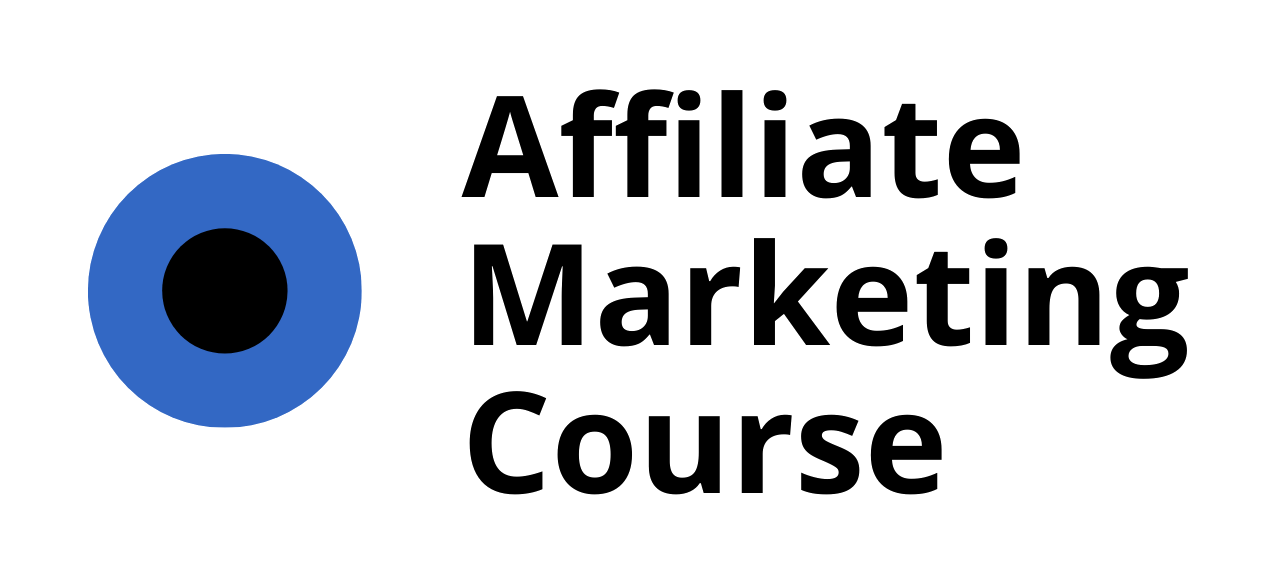Are you eager to harness the power of Facebook for your affiliate marketing efforts? With billions of active users, Facebook presents a vast platform to connect with your target audience, drive traffic, and ultimately convert customers. However, navigating the complexities of affiliate marketing on Facebook can feel overwhelming, especially if you’re new to the game. Whether you’re curious about setting up affiliate links, exploring the potential earnings, or optimizing Facebook ads for better results, this guide is here to walk you through it all. From understanding Facebook’s policies on affiliate links to discovering effective strategies for promoting affiliate products, we’ll cover everything you need to know to maximize your success. Join us as we delve into the ins and outs of affiliate marketing on Facebook, including tips for creating a thriving Facebook page, overcoming common challenges, and leveraging Facebook ads to boost your affiliate marketing efforts. Let’s get started and unlock the full potential of Facebook for your affiliate business!
Key Takeaways
– Leverage Targeting Precision: Use Facebook’s robust targeting tools to reach specific audiences, ensuring your ads resonate with the most relevant users.
– Maximize Reach and Engagement: Tap into Facebook’s vast user base and dynamic ad formats like carousel and video ads to boost engagement and visibility.
– Retarget Effectively: Employ Facebook’s retargeting capabilities to convert users who’ve already shown interest in your products or services.
– Evaluate Cost Efficiency: Assess your budget allocation and competition level to optimize ad costs and improve ROI.
– Focus on Ad Creativity: Craft compelling ad copies and visuals to capture attention and drive conversions.
– Monitor Performance Metrics: Use Facebook’s analytics tools to track CTR, conversions, and ROI for optimized campaign outcomes.
– Start Small and Scale Smart: Begin with a manageable budget to test campaigns and expand based on performance data.
– Compare with Competitors: Understand how Facebook Ads stack up against platforms like Google Ads, especially for visual-heavy niches like e-commerce.
– Address Affiliate Risks: Be mindful of dependencies on third-party partners, misaligned branding, and regulatory compliance challenges.
– Optimize for Best Results: Continuously refine targeting, ads, and landing pages to enhance ROI and achieve measurable success.

Is Affiliate Marketing Allowed on Facebook?
Yes, affiliate marketing is permitted on Facebook, but it must adhere to specific guidelines to avoid violations. Here’s a breakdown:
- Affiliate Links in Posts : You can safely include affiliate links in your organic Facebook posts. This allows you to promote products or services and earn commissions.
- Facebook Ads Restrictions : Using affiliate links in Facebook Ads is strictly prohibited. Promoting affiliate offers through paid ads violates Facebook’s policies and may result in account suspension.
- Compliance : Always ensure your affiliate marketing activities comply with Facebook’s terms of service. Avoid deceptive practices and respect user privacy to maintain compliance.
By following these guidelines, you can effectively utilize Facebook for affiliate marketing while staying within the platform’s rules.
How to Start Affiliate Marketing on Facebook
To effectively start affiliate marketing on Facebook, follow these organized steps:
- Choose the Right Platform: Facebook offers unique opportunities due to its vast user base and advanced targeting capabilities.
- Create a Facebook Business Page: Establish a professional presence by creating a Facebook Business Page for your brand or product.
- Define Your Niche: Clearly identify your target audience and the products/services you wish to promote. Research your audience to ensure alignment with your offerings.
- Build a Targeted Audience: Utilize Facebook Ads to promote your page and attract users interested in your niche. Create engaging content to encourage interaction and trust-building.
- Develop a Content Strategy: Post high-quality images, videos, and articles that provide value to your audience. Share tips, tutorials, and product reviews to establish credibility.
- Set Up Tracking Pixels and Analytics: Implement Facebook Pixel to track conversions and monitor your campaign performance using analytics tools.
- Drive Traffic Through Multiple Channels: Use a mix of Facebook Ads, organic posts, and collaborations with influencers or other businesses in your niche to increase visibility.
- Monetize Your Efforts: Explore Facebook’s affiliate program options or partner with companies offering affiliate marketing opportunities. Ensure compliance with Facebook’s policies regarding advertising and promotions.
- Optimize Campaigns Continuously: Test different ad creatives, targeting criteria, and content types. Refine your strategy based on performance metrics to maximize ROI.
- Stay Compliant and Authentic: Adhere to Facebook’s advertising policies to avoid penalties. Engage genuinely with your audience by responding to comments and messages to build trust.
- Scale and Expand: Once established, explore broader strategies such as expanding your audience reach and experimenting with new marketing techniques to sustain growth.
By following these steps, you can successfully leverage Facebook for affiliate marketing, reaching a broad audience and achieving your business goals.

Can You Make $100 a Day with Affiliate Marketing?
Yes, it is possible to earn $100 a day through affiliate marketing with consistent effort and strategic planning. Below are the key steps and strategies to achieve this goal:
- Choose a Niche : Select a specific niche you’re passionate about. A focused approach allows you to target your audience effectively and build expertise in a particular area.
- Build an Audience : Start by creating content around your chosen niche. Whether it’s through blogging, YouTube videos, or social media, the goal is to attract a targeted audience who are interested in your products or services.
- Create High-Quality Content : Produce valuable, informative, and engaging content that solves your audience’s problems. This builds trust and establishes you as an authority in your niche.
- Monetize Through Affiliate Links :
- Promote affiliate products or services that align with your niche.
- Place affiliate links strategically within your content, such as in product reviews, comparisons, or recommended resources sections.
- Leverage Email Marketing and Social Media : Use email marketing to nurture leads and promote affiliate offers. Similarly, engage with your audience on social media platforms to increase visibility and drive traffic to your affiliate links.
- Optimize for Performance : Use analytics tools to track your affiliate marketing performance. Identify which strategies are working and adjust your approach accordingly to maximize earnings.
- Stay Consistent and Patient : Building a successful affiliate marketing business takes time. Stay consistent, experiment with different tactics, and be patient as you work towards achieving your goals.
By following these steps and continuously refining your approach, you can build a sustainable affiliate marketing business that generates $100 or more per day. Remember, success requires dedication, learning, and adaptation.

Is Facebook Ads Worth It for Affiliate Marketing?
Facebook ads can be a valuable tool for affiliate marketing, offering a combination of precision targeting, extensive reach, and engagement opportunities. However, their effectiveness largely depends on factors like targeting efficiency, budget allocation, and campaign optimization.
Advantages of Facebook Ads for Affiliate Marketing
- Targeting Options: Facebook’s robust targeting tools allow you to reach specific audiences based on interests, behaviors, demographics, and more, ensuring your ads are seen by the most relevant users.
- High Reach: With billions of active users, Facebook provides vast opportunities to engage with a broad audience, increasing the likelihood of conversions.
- Engagement Potential: Users interact with Facebook regularly, offering a platform for dynamic and interactive ad experiences, such as carousel ads and video ads.
- Retargeting Capabilities: Facebook allows for effective retargeting campaigns, helping to convert users who have previously shown interest in your products or services.
Considerations Before Using Facebook Ads
- Cost Efficiency: While Facebook offers various ad formats, the cost can vary widely depending on your target audience and competition. High competition may lead to increased costs per click.
- Ad Creation Requirements: Crafting compelling ad copies and visuals is essential. Without effective creatives, your ads may struggle to achieve the desired results.
- Performance Tracking: Utilize Facebook’s analytics tools to monitor click-through rates (CTR), conversions, and return on investment (ROI). This data is crucial for optimizing your campaigns.
- Budget Allocation: Start with a manageable budget to test campaigns before scaling. This approach allows for adjustments based on initial performance data.
Evaluating the ROI of Facebook Ads
Calculating ROI involves evaluating the number of impressions, clicks, and conversions against your advertising budget. For instance, if you allocate $1000 to Facebook ads and receive 5000 impressions with a 1% CTR (50 clicks), and assuming a 10% commission rate, you might earn $50. This results in a 5% ROI. Higher commissions or improved targeting can enhance this ratio.
Comparison with Other Platforms
Compared to other platforms like Google Ads, Facebook may offer better click-through rates for certain niches, though costs can vary significantly by industry. E-commerce products often benefit from Facebook’s visual ad formats, while lifestyle or hobby-related products may find greater success due to user engagement patterns.
Conclusion
Facebook ads can be a worthwhile investment for affiliate marketing when used strategically. Success hinges on precise targeting, budget management, and continuous optimization. By leveraging Facebook’s capabilities effectively, you can enhance your affiliate marketing efforts and achieve measurable results.
Is $1000 Enough for Facebook Ads?
Determining whether $1000 is sufficient for Facebook ads involves evaluating several factors:
- Budget Allocation: Start with a budget that allows for meaningful reach and testing. For small businesses or those new to Facebook advertising, allocating between $500 to $1,000 per month is often reasonable.
- Targeting Options: Consider location-based targeting, which may increase costs due to smaller audience size. Broader targeting can reduce expenses but may reach a less focused audience.
- Campaign Type: Different ad types like carousel or video ads may require higher budgets due to increased engagement potential. Simpler ad formats can be more cost-effective.
- Competition Level: Industries with high competition may have higher CPC. Optimize campaigns to stay competitive without overspending.
- Campaign Objectives: Whether focusing on brand awareness, lead generation, or sales affects budget allocation. Awareness campaigns may need higher budgets for broader reach, while leads can be targeted more efficiently.
- Landing Page Quality: Invest in high-quality images, clear CTAs, and mobile-friendly designs to maximize conversions.
- Ad Scheduling: Running ads during peak hours may increase costs but could boost engagement. Off-peak times might offer better rates with potentially lower engagement.
- Lookalike Audiences: Expanding reach with lookalike audiences can justify a higher budget by targeting similar, potentially convertible audiences.
- Testing and Optimization: Begin with a smaller budget to test effectiveness, then scale based on performance. Use Facebook Insights to track progress and adjust strategies.
While $1000 is a good starting point, success depends on strategic allocation and continuous optimization. Monitor performance, refine targeting, and enhance ads and landing pages to achieve the best ROI.

Downsides of Affiliate Marketing
Yes, affiliate marketing has several potential downsides that businesses should consider before diving in.
1. Dependency on Affiliates
The primary downside of affiliate marketing is its reliance on third-party partners. While affiliates can drive significant traffic and sales, they are independent entities with their own goals. If an affiliate chooses to stop promoting your business, it can lead to a sudden drop in conversions and revenue. This dependency can make it challenging to sustain growth without actively managing relationships with multiple affiliates.
2. Limited Control Over Promotions
Affiliate marketing requires working with partners who may promote your products or services in ways that aren’t fully within your control. Their marketing strategies, messaging, and audience targeting can vary widely, potentially leading to inconsistent branding or promotional tones. This lack of control can affect how your brand is perceived by consumers.
3. Risk of Negative Consumer Experiences
When affiliates promote your products, they may not always align perfectly with your brand values or product quality. This misalignment can lead to negative customer experiences, such as receiving poor-quality products or services that don’t meet expectations. Such issues can damage your brand’s reputation and lead to customer dissatisfaction.
4. High Competition
Affiliate marketing can be highly competitive, especially in popular niches. Major brands and established companies often dominate affiliate programs, making it harder for smaller businesses to attract affiliates. This competition can limit your program’s effectiveness and require more effort to stand out.
5. Continuous Effort Required
Running a successful affiliate program demands ongoing effort and investment. You’ll need to continuously attract new affiliates, monitor their performance, and adapt to changes in the market. This constant attention can be resource-intensive, particularly for smaller teams or businesses with limited budgets.
6. Potential for Misuse
While most affiliates operate ethically, there’s always a risk that some may engage in deceptive practices, such as misleading ads or promoting products they haven’t genuinely tried or believe in. This misuse can harm both your program’s reputation and the trustworthiness of your brand.
7. Loss of Affiliates
Affiliate partnerships can be fragile. Even if you’re performing well, individual affiliates may decide to leave your program for various reasons, such as better opportunities elsewhere or changing business priorities. This turnover can disrupt your marketing efforts and require constant recruitment to maintain momentum.
8. Compliance Challenges
Affiliate marketing is subject to strict regulations, such as those set by the FTC in the U.S. Failure to comply with these rules can result in penalties, including fines and legal actions. Ensuring transparency in your program and accurately tracking affiliate activities is essential to avoid compliance issues.
9. Reduced Brand Control
Since affiliates create their own content and promotions, your brand’s image may be influenced by materials that are beyond your control. This lack of oversight can lead to inconsistencies in how your brand is represented, potentially confusing customers and affecting brand loyalty.
10. Technical Challenges
Implementing and managing an effective affiliate program requires robust technical infrastructure. This includes tracking affiliate performance, ensuring secure payment processing, and preventing fraud. Without the right tools, managing an affiliate program can become inefficient and costly.
Conclusion
While affiliate marketing offers numerous benefits, it also presents challenges that businesses must carefully consider. By understanding these downsides, you can make informed decisions about whether affiliate marketing aligns with your overall marketing strategy and goals.
Ready to get started? Join our affiliate marketing course today and unlock the secrets to building a successful affiliate program!




0 Comments